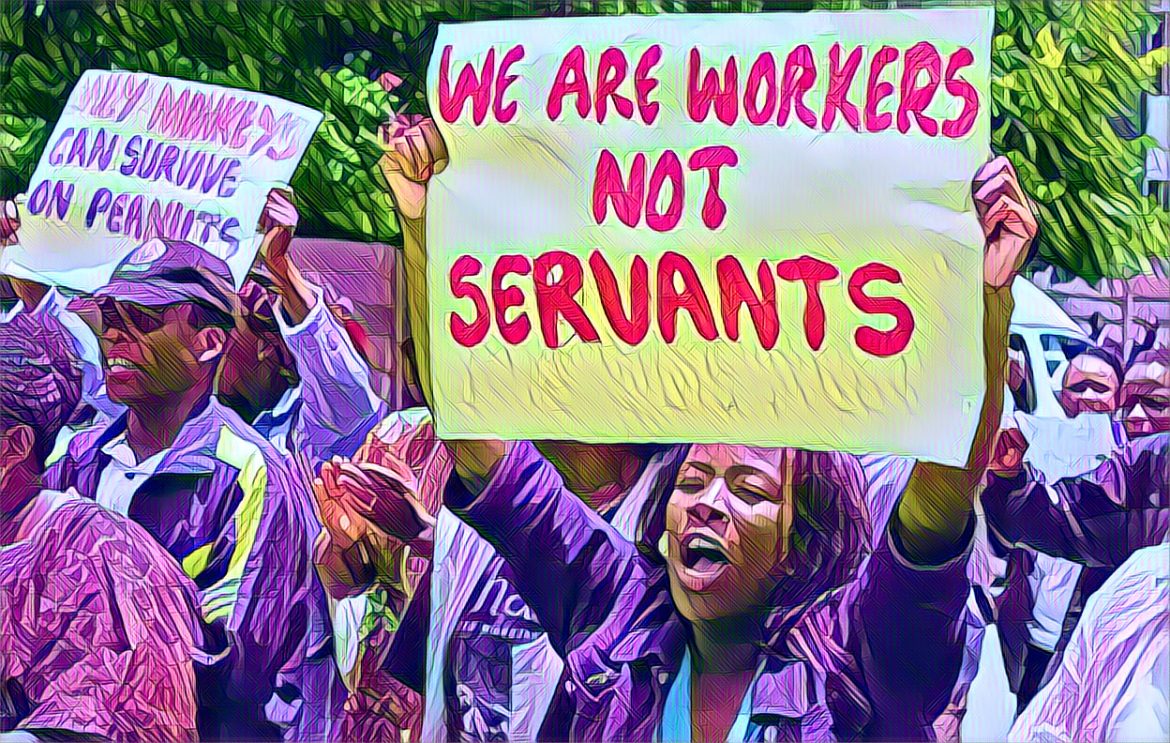In January 2024, Zimbabwean civil servants, represented by the Zimbabwe Confederation of Public Sector Trade Unions (ZCPSTU), voiced their discontent over significant deductions made from their recently increased wages. The US$300 addition, initially introduced as a Covid-19 allowance and later integrated into regular salaries, was initially welcomed with enthusiasm. However, the recent paycheck revealed substantial cuts, leaving the workers with insufficient disposable income, sparking widespread frustration and claims of unfair labor practices.
Cecilia Alexander of the ZCPSTU pointed out that the deductions contravened basic labor principles, as salaries should not be subject to arbitrary reductions. The union expects the government to adjust the salaries to effectively reflect the US$300 increase without compromising the principle of the dollar as the standard salary.
The issue of inadequate compensation for civil servants in Zimbabwe has been ongoing for over two years. Government efforts have been limited to periodic salary reviews, which unions argue maintain workers in a state of continuous poverty. The Amalgamated Teachers Union of Zimbabwe (ARTUZ) and the Federation of Zimbabwe Educators Union (FOZEU) have expressed their inability to work under current conditions. They demand a minimum monthly salary of USD 1,260 and threaten to withdraw labor completely if this is not met by the government.
The low pay has been a significant factor driving Zimbabwean civil servants to seek employment abroad in regions like Europe, America, Canada, and Australia. This brain drain exacerbates the challenges faced by the public sector in providing essential services.
The situation is indicative of broader economic challenges in Zimbabwe, where inflation and currency instability have eroded the real value of wages. The government’s response to these salary demands and protests could have far-reaching implications for the country’s stability and public sector efficiency.
FOZEU’s ultimatum for a salary review reflects the growing impatience among public sector workers and highlights the urgent need for the government to address the wage crisis. The union’s call for action underlines the severity of the situation, with a potential complete withdrawal of labor looming if their demands are not met.
This development in Zimbabwe’s labor sector is part of a complex socio-economic landscape, where government actions are closely monitored by various stakeholders, including trade unions, civil society organizations, and international observers. The outcome of this wage dispute will not only affect the civil servants but also set a precedent for future government-worker interactions and potentially influence the broader economic policies of the country.
In summary, Zimbabwe’s civil servants, through their unions, are challenging the government’s approach to salary adjustments, demanding fair and sustainable wage increases. This dispute reflects deeper economic issues in Zimbabwe and highlights the need for a balanced approach that addresses the needs of the workforce while considering the country’s broader economic realities. The resolution of this conflict will be a critical test for the government’s commitment to fair labor practices and its ability to manage economic challenges effectively.


